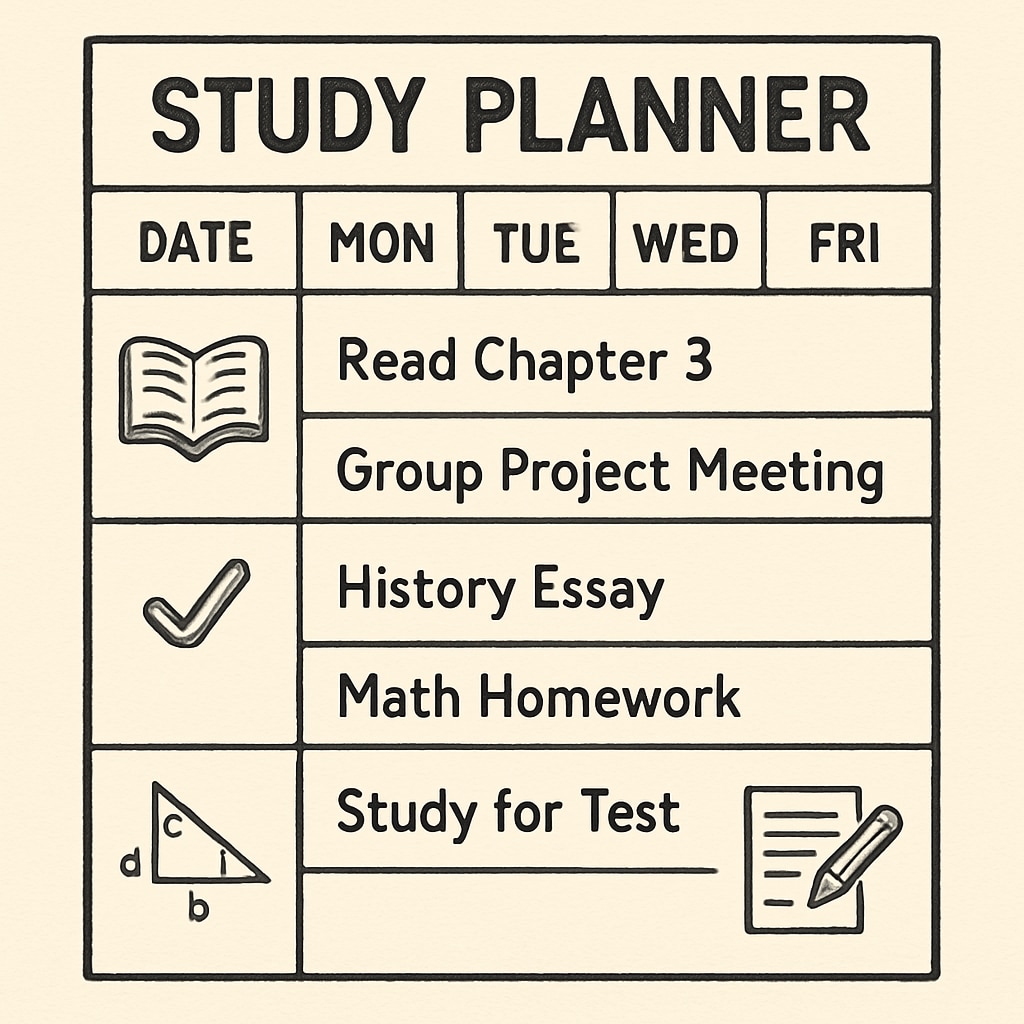Preparing for multiple pending exams in a physics degree program can be overwhelming, especially when time is limited. Effective time management is crucial to tackle these challenges, allowing students to focus on building a solid foundation in scientific concepts while maximizing efficiency. This article explores practical strategies to overcome academic bottlenecks, emphasizing systematic planning and disciplined execution.
Setting Clear Goals and Priorities
One of the first steps in managing limited time is setting clear goals for what needs to be accomplished. Start by identifying all the subjects and topics that require attention and rank them based on difficulty and importance. For example, prioritize advanced physics topics that carry more weight in exams over simpler concepts that can be reviewed quickly.
Use a structured approach such as the SMART (Specific, Measurable, Achievable, Relevant, Time-bound) goal-setting framework to outline your study objectives. This method ensures focus and accountability throughout the preparation period.

Developing a Focused Study Schedule
Creating a personalized study schedule is essential for managing time effectively. Allocate specific blocks of time to each subject or topic, ensuring a balanced distribution of effort. For instance, dedicate mornings to complex theoretical physics concepts, while evenings can be reserved for problem-solving practice.
Consider implementing time management techniques such as the Pomodoro Technique, which involves working in short bursts followed by brief breaks. This approach can help maintain concentration and prevent burnout. Additionally, always include buffer periods in your schedule to accommodate unexpected challenges or additional review sessions.

Leveraging High-Yield Resources
With limited time, it is essential to focus on high-yield study materials that offer maximum value. Utilize textbooks, online lectures, and practice questions that are specifically tailored to the curriculum of your physics degree program. Avoid spending time on overly broad resources that may not directly contribute to your exam preparation.
Online platforms such as Khan Academy (Khan Academy) and Brilliant (Brilliant) provide interactive lessons and problem-solving exercises designed to enhance understanding of complex scientific concepts.
Active Learning Techniques
Passive reading and note-taking are often insufficient for mastering physics topics. Instead, engage in active learning techniques such as solving practice problems, teaching concepts to others, or creating mind maps to visualize connections between ideas. For example, use diagramming tools to map out the relationship between Newtonian mechanics and thermodynamics.
Active learning not only improves understanding but also enhances memory retention, which is critical during exams. Furthermore, testing yourself regularly with mock exams can help identify areas requiring further review.
Maintaining Physical and Mental Well-Being
Effective time management extends beyond academics; maintaining physical and mental well-being is equally important. Ensure you get adequate sleep, eat nutritious meals, and incorporate physical activity into your daily routine. These habits improve cognitive function and sustain energy levels during intensive study periods.
Additionally, manage stress through mindfulness practices such as meditation or deep breathing exercises. Staying calm and focused will significantly enhance productivity and reduce the risk of burnout.
Final Thoughts
Preparing for multiple physics exams within a limited timeframe requires thoughtful planning and disciplined execution. By setting clear goals, creating a structured schedule, utilizing high-yield resources, and engaging in active learning techniques, students can navigate academic bottlenecks effectively. Remember, maintaining a balance between study and personal well-being is key to long-term success.
Implement these strategies to not only excel in your exams but also build a strong foundation in scientific concepts that will serve you throughout your academic and professional journey.
Readability guidance: This article uses concise paragraphs, practical examples, and actionable tips to ensure clarity and engagement. Active voice and transition words are prioritized for smooth flow.


